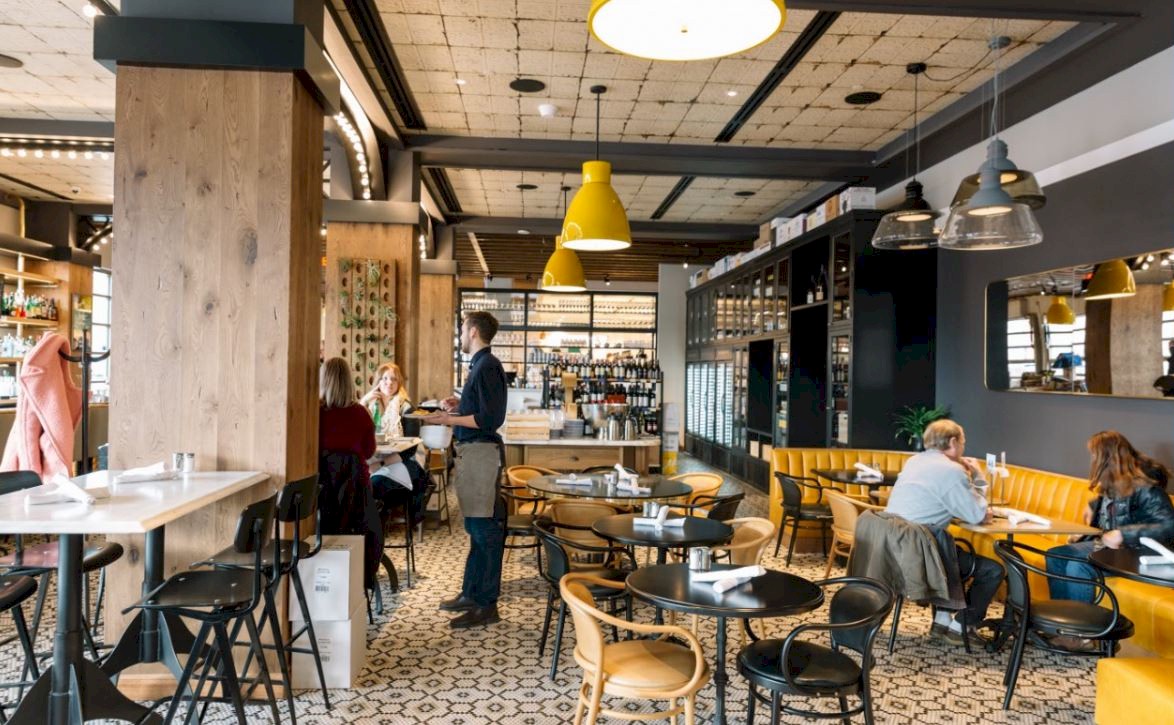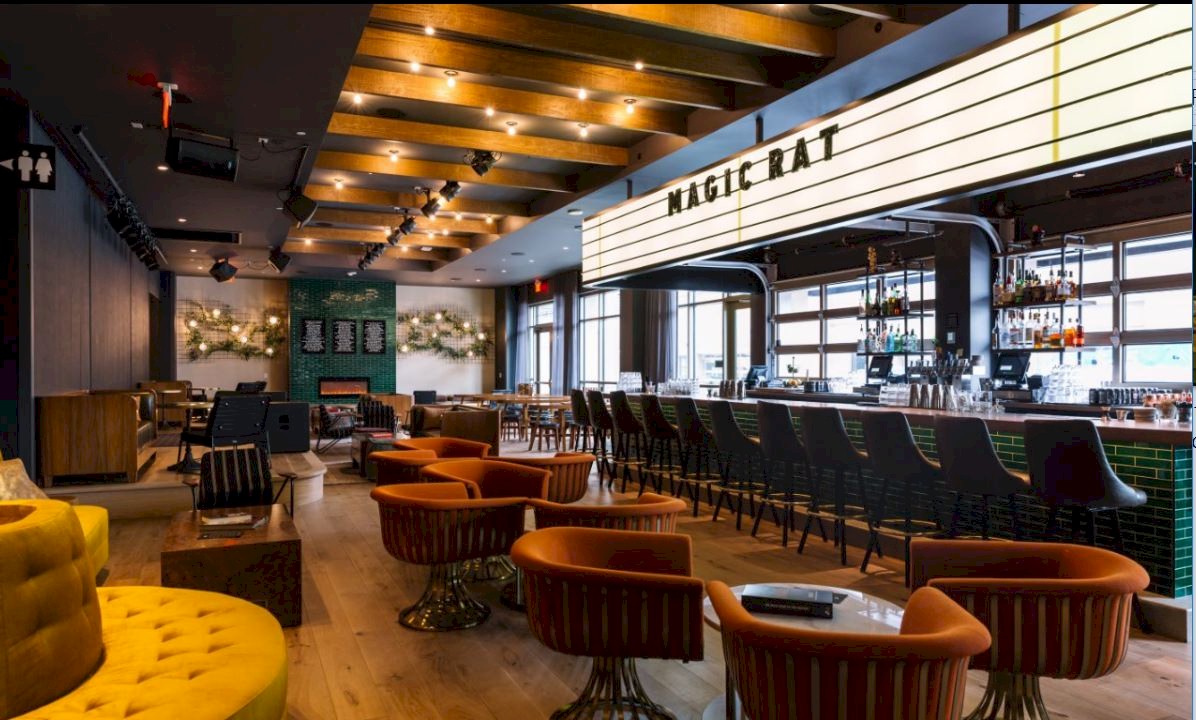What is Luxe? Defining Luxury and its Role in Design
By David Ashen, partner & founder, dash design
This article was published originally on Hotel Executive February 25, 2018
A year or two ago, I checked into a boutique hotel in Curacao. Our firm had a project in the area and even though it was a business trip, I decided to stay in a more local, boutique hotel; the Bijblauw, which featured a couple of houses with a combined dozen or so rooms or that were joined together on the water. My stay happened to be during the off-season, and I got a primo room with a private deck overlooking the ocean. The room was outfitted minimally with beautiful, white linens and plush towels. The hotel owner had a good eye; each room was furnished differently and with a sense of style. I remember looking around the space for the television but couldn’t find it. It wasn’t in the open, nor hidden as a pop-up device. Through a Google search, I realized the other rooms had a television. So, why didn’t mine?
The hotel’s receptionist told me I had the best room at the site and that the owners felt there was no need for a television since its magnificent views provided guests with an exceptional opportunity to disconnect and decompress from their daily lives. That, to me, was luxury. By disconnecting from our connected world, while re-connecting to myself and where I was, I was afforded an amazing experience. The private deck with its unforgettable vista, the large room and amazing bathroom - all of it brought me back to me.
Similarly, another hotel, the Natura Cabana in the Dominican Republic, evokes that feeling. It offers a minimalist, yet luxurious beachside setting for its guests. I first stayed at the boutique hotel and spa 14-plus years ago. The site, complete with 10 small cabanas, was built by an architect and his wife, a yoga teacher from Chile. None of the rooms is fitted with glass or screens. There’s no radio or television and dining is provided by two, small thatch-roofed structures - one for freshly made breakfasts and the other for sumptuous dinners. In addition, there is a small (and private) spa, and an amazing open air, ocean-front yoga studio. While the beach doesn’t lend itself to swimming, there’s something about the place’s few rooms, simplicity, rustic aesthetic, and personalized service that makes this place extraordinary. If a guest wants to go horseback riding, the horses magically show up on the beach and if a guest wants to have an intimate Indian meal, a private restaurant will open for a group of 10 (no worries for groups of less than 10, he staff will pull the group together). Primarily, the ability to disconnect from the outside world is the indulgent luxury this rustic resort provides.
Another one of my favorite places to stay is the Pavillon de la Reine in Paris. It’s a select, 50-room, high-design hotel situated on the famed Place de Vosges in Paris. Housed in an old mansion, the Pavillon is entered through an exterior courtyard with an intangible grand, yet intimate ambiance. The hotel’s exceptional amenities and service are more than a nod to luxurious accommodations. Both provide guests with an uncommon sense of belonging and the sublime feeling of being in the home of their dreams. It has become the “in the know” hotel for the famous in fashion and film who want to be in the middle of Paris with anonymity.
I’ve stayed at the Pavillon many times in the past 20 years. Its level of service is memorable, as are the privacy and intimacy its rooms. They make you feel like you are at home and make that evident through small yet subtle touches such as the very simple honor bar in the salon. Unlike the limitations of 300-room hotels, this smaller one allows guests to come and go in the safety comfortable anonymity, making it a luxurious stay for celebrities and everyday guests.
Also notable is The PuLi Hotel in Shanghai. Built in nearly a decade ago by a Taiwanese company, the beautiful, minimal hotel is located amid the city’s busy comings and goings. I love staying there. There is a concierge floor that provides daily laundry, as well as a number of other services (for an extra $30 per day). Everytime I book a trip, the concierge e mails me before my arrive to ask if I wanted lemongrass scent in my room, along with orange juice and Diet Coke, like the last time I was there. In the past, I’d had a scotch at night - did I want a decanter in place when I arrived? What else would I like? I don’t live the same way at home, but being treated to that level of personalization while in a hotel? That’s luxury.
Also at The Elizabeth Hotel is The Emporium Kitchen and Wine Market that features food from locally sourced farms. Photo Credits Daryl Love.
Two weeks ago, while spending time in Fort Collins, Colorado, I stayed The Elizabeth Hotel, which included an on-site bar was named the Magic Rat Live Music, and a restaurant called The Emporium Kitchen and Wine Market that featured dishes, gourmet sandwiches made with locally sourced ingredients, along with a selection of wines, cheeses and other fresh foods.
At one point, I left a business meeting at the hotel with my luggage and rental car’s valet ticket in hand. But when I walked out to hand my ticket to the valet, my car already was there. The front desk representative had arranged for my car to be waiting for me when I needed it. Luxury.
When I arrived at another property, the Clift Hotel in San Francisco, the valet that immediately greeted me, handled my bags and addressed me by name. Either the valet managed to get a good glimpse of the name tags on my luggage, or the person had been apprised of pending arrivals. In either case, the individual’s quicker-than-lightning training spoke of the property’s impressive culture of attentive care, right from the start.
Swire Hospitality in Hong Kong offers other kinds of luxury with its Opposite House in Beijing, EAST business class hotel (Hong Kong and Miami) and Upper House luxury hotel in Hong Kong. When I arrived at the Upper House for a stay, my taxi was greeted at the front door by a hotel associated who had an electronic tablet. The hotel’s top 20 floors had been converted from residential apartments to overnight guest rooms, and instead of escorting me to a reception area and check-in desk on a lower level (which does not exist), the hotel associate ran my credit card and check-in information on her tablet as we ascended the hotel’s elevator. I was brought straight to my room. It was an intimate and personal experience that showed me, once again, how luxury isn’t about design but about service, intimacy and personalization.
Even so, a sense of luxury can be communicated through designs that address guests’ senses. What people see - colors, textures, lighting - and what they touch, matter. Think about the differences between sitting on soft vinyl and genuine leather; on mohair versus velvet; on velvet instead of wool. Or sleeping on an amazing bed fitted with high quality sheets.
I was at a hotel recently in western Colorado where the bedsheets were fine, but the its duvet, pillows and mattress were great. And there’s nothing better than a great absorbent bath towel. People don’t need other amenities because those are key, as is great local coffee.
It’s the simple things. There’s no need for a Keurig when freshly ground coffee brewed from a traditional coffee maker and poured into a great cup is available. Little things make a difference and don’t over-power spaces. Good quality sound, natural light or great quality artificial light, are luxuries. Back at The PuLi, the hallways had no visible fixtures. They were hidden in the floors and ceiling coves. There was a sensitivity to the quality of light.
Scent is another luxury. Many properties invest funds into in infusing scents into public spaces, which can be good or bad. Worst, are overwhelming scents, where walking into a hotel is like stepping into a Yankee Candle store, with its abundance of arresting fragrances. But the scent inside the Renaissance Hotel in Rhode Island is super-subtle, lending to a fresh and pampered environment. Adage, a fragrance store in Hudson, New York, sells candles, diffusers and other high-quality items for ambient scents for hotels and homes, and hoteliers are flocking to the retailer to use its scents to create memorable experiences.
Like the gentle impact of subtle scents, the moderate use of elements that touch that other senses also imparts a mellow, pampered feeling. Holding back from using too much gold, scents, sounds and textures isn’t stingy. It’s downright luxurious.
As designers and hoteliers, we know that while exceptional design is one component of a well-appointed property, luxury relates more closely to what guests see, touch, taste and hear at all levels. Luxurious accommodations may be best associated with places rife with amenities, but true luxury stems in having the ability to disconnect from technology and reconnect with yourself. When that happens, all other amenities disappear. Addressing the total sensorial experience and how they make guests feel creates that intangible, luxurious quality that have guests walking out, saying they loved the place. They may not know exactly why, but the hotel strikes a positive, emotional chord that’s sure to result in return clients.


